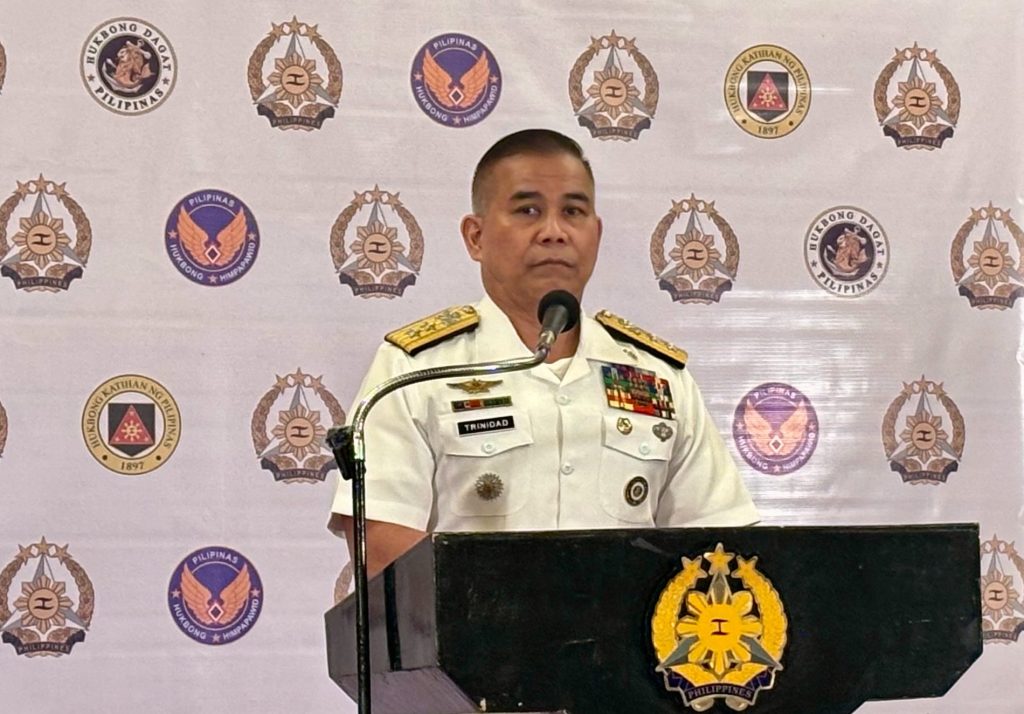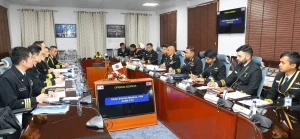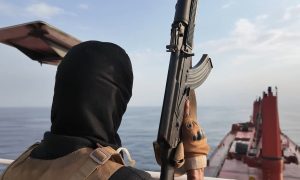Philippine defense and maritime officials have raised alarms about coordinated disinformation campaigns designed to undermine national unity and trust in the country’s stance on the West Philippine Sea (WPS). Senior officers from the Armed Forces of the Philippines (AFP), the Philippine Navy (PN), and the National Maritime Council (NMC) are particularly concerned that both domestic and foreign false narratives are being employed to manipulate public opinion during heightened geopolitical tensions.
Rear Admiral Roy Vincent Trinidad, the Philippine Navy’s spokesperson for the WPS, stressed that disinformation is being utilized as a strategic weapon. He highlighted instances where attempts were made to mobilize retired military personnel in ways that could create divisions within the ranks. Trinidad urged military retirees to resist being swayed by these narratives, which distort the truth for ulterior motives. He drew parallels to tactics used by China to promote its claims in the region, stating that similar misleading information is undermining public trust in government institutions.
This disinformation came to the forefront amid discussions about pension benefits for armed forces members and alleged irregularities with flood control projects, which prompted some retired officers to call for a “withdrawal of support” from the government. The AFP leadership reaffirmed its loyalty to the Constitution, asserting that its personnel should remain apolitical. President Ferdinand Marcos Jr. has addressed concerns by establishing an independent body to investigate irregularities related to infrastructure projects.
During a recent maritime conference, officials noted that disinformation poses a growing challenge to national security. They emphasized the importance of maintaining public integrity alongside military modernization efforts. While discussing modernization plans, Trinidad mentioned that undersea warfare capabilities are being developed, and larger national decisions will inform any potential submarine acquisitions.
Former Philippine Navy Vice Commander Rear Admiral Rommel Ong pointed out that the Philippines faces greater pressure from China than other Southeast Asian nations due to its strong alliance with the U.S. He specified that unlike more pleasant exchanges between communist states like Vietnam and China, the Philippines’ stance sparks a harsher response from China, which aims to use the Philippines as an example.
Addressing the ongoing disinformation, NMC spokesperson Undersecretary Alexander Lopez explained that China’s state-linked media spreads lies about territorial claims in the WPS. He urged Filipinos to verify information through official sources to avoid falling for manipulated narratives. The NMC reported 180 cases of disinformation related to China in early 2025, highlighting the role of both domestic and foreign accounts in spreading false claims.
Philippine military leaders, during the same conference, insisted on the importance of transparency as a countermeasure against misinformation. They aim to publicize verified incidents involving Chinese incursions, advocating for a shared sense of national patriotism built on accurate information.
Upholding the 2016 Arbitral Tribunal Award, which invalidated China’s territorial claims, remains crucial for the Philippines as it faces regular incursions from Chinese vessels. Analysts and government reports link these actions to broader misinformation campaigns aimed at eroding international support for the Philippines’ claims. The government has lodged numerous diplomatic protests against these incursions, underscoring the need for transparent communication to bolster public confidence.
In summary, addressing disinformation is vital for the Philippines, especially regarding its maritime rights in the WPS. Officials urge the public to remain vigilant, verify information, and support efforts aimed at upholding national integrity and sovereignty against external challenges.
Source link










